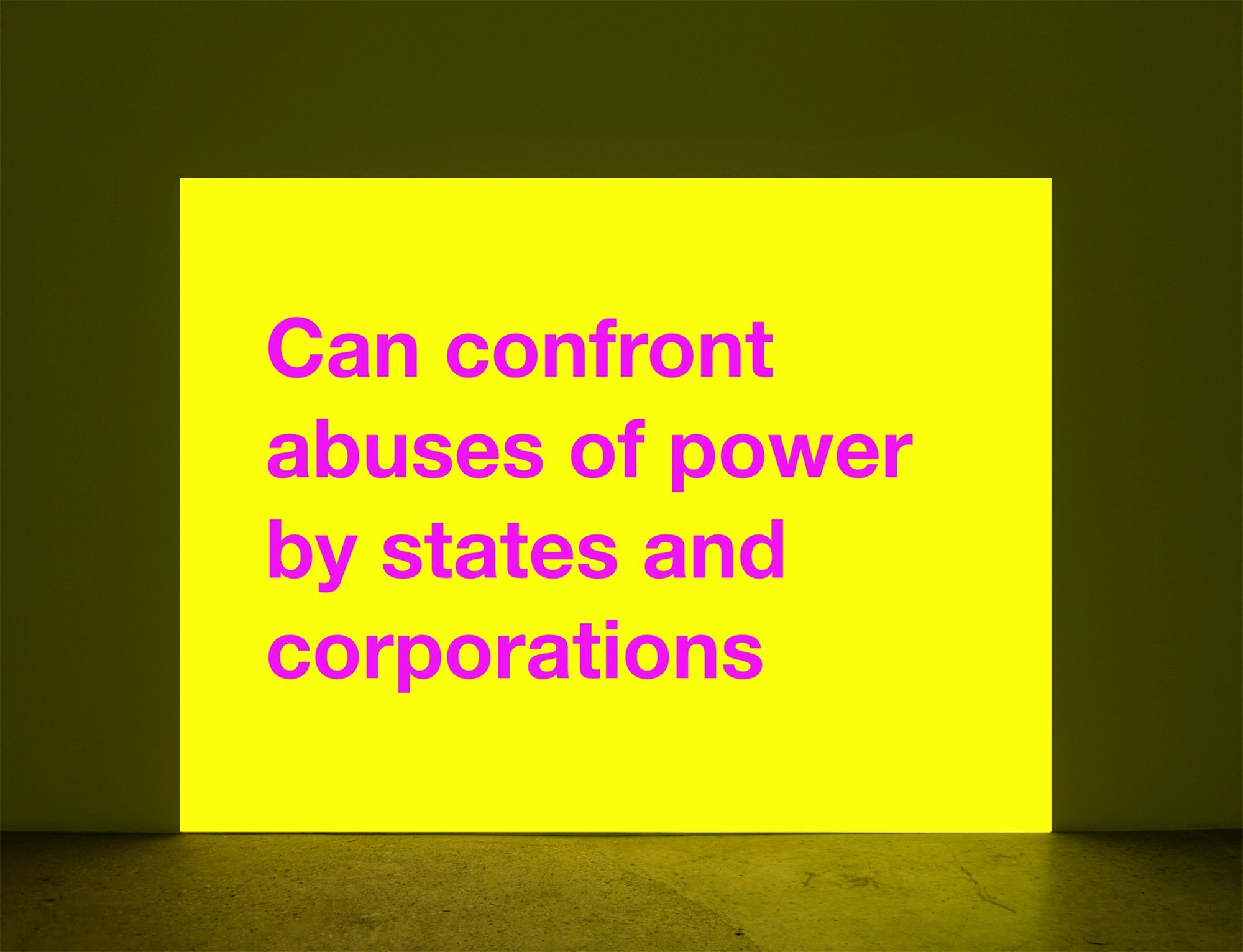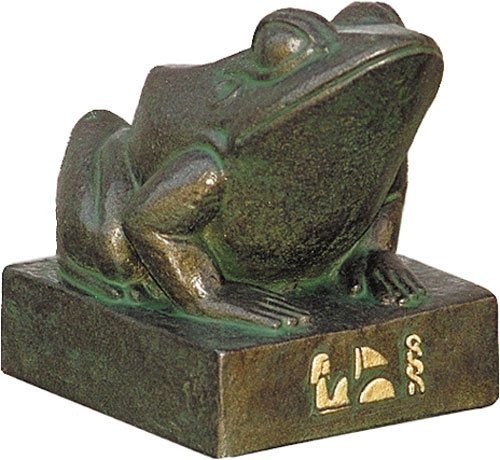All Networks Lead Through Kansas: The Shadowy Well(ness) of Masculinity
|PHILLIP PYLE
In the second installment of his column ALL NETWORKS, Phillip Pyle looks to the “Manosphere,” an online universe of right-wing forums, discourses, practices, and politics dedicated to upholding masculinity. In addition to considering the ways in which the Manosphere crosses from the digital into the physical realm through male-perpetrated violence, Pyle identifies the more subtle but nevertheless still material ways that this shadowy realm has come to influence and even define mainstream politics. His focus on the materials of wellness culture in particular, informed by a discussion with artist Joshua Citarella on the convergence of the InfoWars right and Goop left, leads him to question whether the way out of the contemporary plight of masculinity might require a disposal of the stained materials of popular wellness culture altogether.

Ed Atkins, Happy Birthday!! (still), 2014.
Like many other writers at least tenuously connected to the internet, I’ve been enchanted by discourses surrounding the “girl” over the past year. In the spaces that I inhabit online, the spread of PDFs of the canonic Preliminary Materials for a Theory of the Young-Girl (1999)—which investigates the exploited position of the “Young-Girl” under modern consumerism—and new trend diagnostic texts in various culture publications making declarations in their title—such as “There are only girls on the internet,” “Everyone Is a Girl Online,” and “Girls Rule the Internet”—have made the topic almost unavoidable. And the breadth of material these writers are responding to, be it “girl”-qualified TikTok trends or the more amorphous, unspoken gender signification attached to seemingly random groupings of actions, habits, and products, has certainly warranted the emergence of a larger discourse questioning what’s happening to ideas (and the realities) of girlishness and femininity online. I, too, have taken a small part in it, having seen it as an inevitable talking point when ruminating on the photographs of Petra Collins. However, having recently spent more time thinking about the bizarre health-minded displays of masculinity I regularly encounter both online and offline, I’m now plagued by a question that has rarely crossed my mind before: What about men?

Christine Tien Wang, History Meme, 2022.
Enter the “Manosphere”
To think about young men online is often to think about violence. Hatred, in the form of racism, misogyny, and/or transphobia, is the modus operandi of “incels” and the larger apparatus of websites, online communities, and discourses that’s been deemed the “Manosphere.” It’s well-known that violence, in both language and memes, flows like water in this sphere—and that symbolic violence eventually translates into physical violence. 4chan, the imageboard most known for breeding hatred due to a lax approach to community moderation, was explicitly cited as an influence by the white supremacist shooter Payton Gendron who targeted a Buffalo supermarket in 2022. In a horrifying crossover of online-offline violence, the shooting was streamed on Twitch and copies of the stream were reportedly viewed millions of times.
Masculinity, and particularly white masculinity, historically carries violence with it. Now, this kind of violence is spectacularized in such a way that it’s repeated endlessly, and thus made even more powerful. Displays of male aggression are screen-shotted, screen-recorded, reposted, and implicitly supported in internet forums through a lack of adequate moderation, spreading like pathogens to the minds of impressionable boys and already-confirmed incels.
It’s comforting to think that these narratives occur in the more niche, shadowy corners of the internet and contemporary life, but, of course, the very same rhetoric spewed by teen boys online is spewed by some of the most influential figures in politics. For a recent Wired article addressing the overlaps between Donald Trump, JD Vance, and Andrew Tate—the internet influencer who is a self-proclaimed misogynist and is accused of being a rapist and human trafficker—David Gilbert establishes a clear link between the public face and underbelly of American conservatism. Considering the sheer quantitative impact of Tate—who had over 11.6 billion views on YouTube before his account was suspended, and was the third most Googled person in 2023—it shouldn’t come as a surprise that some of the tenets of the Manosphere have even seeped into the non-conservative parts of the mainstream.

Meme courtesy of @joshuacitarella
The Stained Materials of Wellness Culture
The diffusion of the Manosphere doesn’t just occur in language or discourse. It also takes place at the level of material. Bizarre as it may sound, the Manosphere partially ruptures into the mainstream through wellness culture, where trending supplements and body politics threaten to draw unsuspecting audiences closer to right-wing politics than they’d like to be.
Whereas Goop, the liberal lifestyle blog founded in 2008 by Gwyneth Paltrow, helped usher wellness into the mainstream through an audience made up largely of women, the Manosphere was largely responsible for introducing wellness to men—and its impact didn’t stop there. In a 2017 article for Quartz, Nikhil Sonnad even established a material link between Alex Jones’ conservative fake news enterprise InfoWars and Goop. Over a dozen of the same supplements are sold or recommended by both InfoWars and Goop, and Sonnad documents these overlaps through merely reproducing their differing product names and descriptions side by side. Infowars sells ashwagandha, an herb used in Ayurvedic medicine, as “Heirloom Organics Professional Medicine Pack,” describing it as “effective for a host of debilitated [sic] conditions, including general weakness, impotence, infertility, and others.” Goop recommends ashwagandha under an article for “Magic Potions for Clarity, Beauty, and Energy,” advocating that it “tonifies the immune system; inspires vigor and strength; relieves mental, emotional, and physical stress; and harmonizes mind, body, and spirit.”
Many of the supplements that InfoWars and Goop have in common are Ayurvedic herbs or mushrooms. Many have also only been proven to be effective in animal studies and are inconclusive in regard to their human effects. Obviously, InfoWars’language is typically more hysterical and manly than Goop’s descriptions. InfoWars’description of bacopa, an herb said to improve memory, suggests: “Top scientists and researchers agree: we are being hit by toxic weapons in the food and water supply that are making us fat, sick, and stupid.” InfoWars’descriptions are also more blatantly political. Maca, used in InfoWars’ Super Male Vitality supplement as well as in the Goop-recommended Moon Juice Sex Dust, is apparently used “by Alex Jones in order to maximize vitality when working up to 12 hours a day or more in the fight for freedom.”

A meme featuring Patrick Bateman, portrayed by Christian Bale in American Psycho (2000), a character who has gained significant popularity within the Manosphere.
Case Study: Joshua Citarella’s Auto Experiment: Hyper-masculinity
Sharing material is one thing, but sharing a lifestyle—particularly one whose practices have roots in neo-conservative and fascist online discourse—is an entirely different matter. Three years ago, artist and researcher Joshua Citarella began a project testing whether it was possible to utilize the health strategies borrowed from the right-wing sectors of 4chan, Discord, Reddit, and X without becoming conservative. Auto Experiment: Hyper-masculinity served as a counter-provocation of sorts.
When I talked to him, he elaborated, explaining that the project was responding to “a provocation that comes from a lot of these people that these supplements and exercises were attached to right-wing politics and that as your testosterone levels decline, you become more progressive or weak or politically docile and so on.” Thus, for the whole of the summer of 2021, Citarella mewed (a tongue and jaw exercise originating on incel forums in the mid-2010s which is intended to chisel the face), practiced seed retention (abstaining from self-induced ejaculation), abstained from eating seed oils, and drank raw onion juice. He also tried some of the more extreme tactics, including the InfoWars’ Male Vitality Supplement, which he stopped after only two weeks for causing, among other things, “a rage fueled outburst when someone linked a Bell Hooks PDF in the Discord,” and sunning his balls.

The "Chad vs. Virgin" meme, which originated on 4chan and gained popularity in incel forums, contrasts desirable and unattractive male traits, according to the authors.
The health of the dedicated Leftist thinker and analyst greatly benefitted from these tactics yet his politics remained unchanged after a summer of partaking in the Manosphere. Moreover, when Citarella, like Nikhil Sonnad, analyzed Goop and InfoWars together for a podcast last year, he not only found that “alt health show ups in right, left, and also just mainstream culture” but also saw common politics embedded in the material (supplements) they share.
For Citarella, both perspectives on wellness emphasize individual politics and assume individual responsibility “for the fate of the world, in the case of climate, and the fate of your health.” He also told me that he thinks they share an “equal foreclosure of any sort of collective politics,” and are thus “symptomatic of the larger problem of the disappearance of mass politics during our young lifetime.” If, say, there is some shared political conviction behind the recommendation of eleuthero root on Goop and the sale of it on InfoWars, then how does the expression of that politic differ so much between the two? In other words, how can the same material function as both a liberal, progressive, pseudo-spiritual ailment as well as a weapon against the threat of widespread emasculation that the right wing gestures toward with conspiracies as wild as Jones’ argument that the chemicals in the water supply are “turning the friggin’ frogs gay”?

Meme courtesy of @joshuacitarella
Fringe No More: “Wellness” as a Conduit of the Manosphere’s Entrance into the Mainstream
It would be remiss to attribute the material convergences of the health-minded left and right to some horseshoe theory sleight of hand, partially because they cannot even be described as fringe. In fact, many of the leading influencers in the Manosphere, including Jones and Tate, have appeared on the Tucker Carlson Show, which Citarella reminds me performs quantitatively better than “mainstream” cable networks such as CNN and MSNBC. Last June, Carlson’s first show on X after moving from Fox News was viewed around 120 million times. From these stats, Citarella asks, “If the fringe is quantitatively larger than the mainstream, should we be calling it something else?”
Considering the political subtext behind popular TikTok trends such as “looksmaxxing”—a set of practices dedicated to optimizing physical appearance, which originated in incel forums and which now has over 150 million TikTok posts associated with it—it would be consoling to label such things as fringe. However, as their detrimental effects reflect the generally worrisome state of young men today, and thus politics writ large, perhaps more scrutiny should be directed toward the material itself. While the less severe forms of looksmaxxing, referred to as “softmaxxing,” don’t seem to be a cause for alarm in and itself—I haven’t found there to be a latent conservative quality in the gua sha I’ve been doing for the last couple of months—the more intense and intrusive “hardmaxxing” tactics, which include limb-extension surgeries, intentionally hitting one’s face against hard objects, and chin extensions, point to the worrisome politics behind looksmaxxing generally.

Kareem Shami, who advocates for softmaxxing, 2020 (left) and 2023 (right), courtesy of The Guardian.
Bryan Johnson, former Braintree CEO and founder of the viral “Project Blueprint” anti-aging experiment, provides a more extreme of looksmaxxing where the paradigmatic poles of popular wellness culture—conservative men and liberal women, InfoWars and Goop—also dissolve on the material level. Known for his two million dollar per year routine which includes body scans, swapping blood with his son, taking a non-feminizing estrogen, penis rejuvenation, and, of course, a regimen of around 20 supplements, Johnson’s approach to body optimization, anti-aging, or life-extension is not explicitly accompanied with right-wing political rhetoric in the same way Alex Jones’ recommendations are. However, the sum of his implicit beliefs—transhumanism, biohacking, data as God, seed oil rejection—do often point to right-wing politics, at least in their contemporary usage amongst Silicon Valley execs.
That the Manosphere has had a monumental effect on wellness culture’s diffusion is by no means shocking. After all, without even considering the conversations that occur on shadowy 4chan forums, mainstream social media has proven to be a catalyst of conservatism. X is the greatest recent example of this, with studies proving that the app has become more right-leaning since Musk’s acquisition. His reinstatement of previously suspended right-wing accounts and a general algorithmic bias ensured the inevitability of this shift. Moreover, wellness products and lifestyles today are distinctly phygital, which Henry Bruce Jones describes as a portmanteau cramming together “the word ‘physical’ into the word ‘digital’to describe objects, products and experiences that blur the lines between the two.”
Despite often promoting ancient medicines and practices, the spread of Western wellness culture has depended as much on popular online platforms such as InfoWars and Goop as much as it has on the opening of wellness-oriented restaurants and grocery stores. The materials of wellness can be read as an experimental conduit for the future, a liberating technology of the self, a symptom of neoliberal individualism, or an echo of masculine fascist aesthetics. The only constant is that their physical proliferation is incomprehensible without their digital survival.

Tato (Guglielmo Sansoni), “Fantastical Aeroportrait of Mino Somenzi,“ 1934.
Exit Route
Men are clearly in a state of crisis, but to merely expound that without considering an alternative is to risk falling into the trap of nihilism. It also risks offering concessions to the structural issues at play. The same inequitable structures that effect non-men, too. In The New Yorker, Idrees Kahloon reminds readers that, “How men are faring in school and at work may not arouse everyone’s concern, but how men choose to pursue politics inevitably affects us all.” The path forward certainly won't come from a nightmare-fueled InfoWars and Goop collaborative ayahuasca retreat, but their shared material convictions do point to a potentially productive structural skepticism increasingly popular in the mainstream. “I think these are just kind of common ideas now, that people have a general distrust of institutions and particularly topics related to health,” Citarella tells me. “Probably buoyed by the mismanagement, the incompetence of the pandemic—that’s the background noise for a lot of that.”
The question, then, is how to direct skepticism toward the organization of a collective interest rid of the pollution of harmful conspiracies, the influence of right-wing grifters, and economic barriers to entry. Just as "girls" became a collective interest among various strains of internet discourse over the past couple of years, it’s time that “boys” are paid the same level of critical attention and scrutiny–for the sake of everyone. This attention certainly shouldn’t be of the sort propounded by the pseudo-intellectual, biologically-determinist, and violent factions of the Manosphere, nor should it come from those hoping to rehabilitate masculinity with popular wellness routines and materials, which have themselves become stained with the toxins of hyper-individualism and the Manosphere. Instead, skepticism should progress on the level of substance, beginning with those materials, such as supplements, which influence the masses today precisely because of their phygital status.
Credits
- Text: PHILLIP PYLE
Related Content

All Networks Lead Through Kansas: The Text Image

The New American Dream Is Sponsored by Meta: ANA VIKTORIA DZINIC

“We Cannot Assume False Neutrality”: Wu Ming—from the Luther Blissett community

An Analysis of The Backrooms—Also Known as the Internet's Horror Rooms

Disco Isn’t Dead. It Has Gone to War

Image Stacks With ISABELLE GRAW

The Erotics of the Nerd

Reality TV as a Sociological Analysis: JAMES BANTONE

“Drama—netic” by CHRISTOPHE DE ROHAN CHABOT

Living in a Magazine World

Weaponized Irony: A Roundtable on Trolling and Politics

Abusing Technology with Kim Gordon